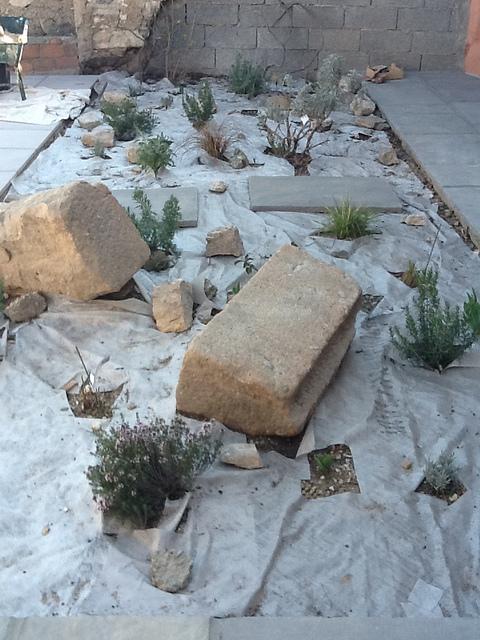Many materials have been used as mulches. Inorganic materials, anything not living, such as rocks and plastic can be used. Most are effective weed barriers. Cost, availability and aesthetics are all elements that factor into choosing a type of mulch.
Types of Inorganic Mulch
Weed barrier and landscape fabric
- Prevents growth of most annual weeds
- Allows for the exchange of water and oxygen
- Apply directly onto the soil and fastened to the soil to avoid movement
- Works well with bark or other organic mulch on top of the weed barrier
- Does not control perennial weeds
- Does not allow organic matter to accumulate in soil

Rocks and gravel
- Do not decompose quickly
- Will not need to be replaced often
- Some rock material may not be aesthetically appropriate for all types of gardens or beds
- Can create hot spots
Benefits of Inorganic Mulch
- Low maintenance
- Low replacement frequency
- Functionally versatile
- Often available in common commercial centers
Liabilities of Inorganic Mulch
- Can have high cost
- May not be appropriate for all sites
- May need to use chemical sprays to reduce weeds
- Difficulty of installation

Additional Resources:
Types of Mulch: Organic Mulches
West
Midwest
Southeast
Florida – Mulch
Florida – Mulching Practices for South Florida
Mississippi – Mulches for the Landscape
South Carolina – Mulch
